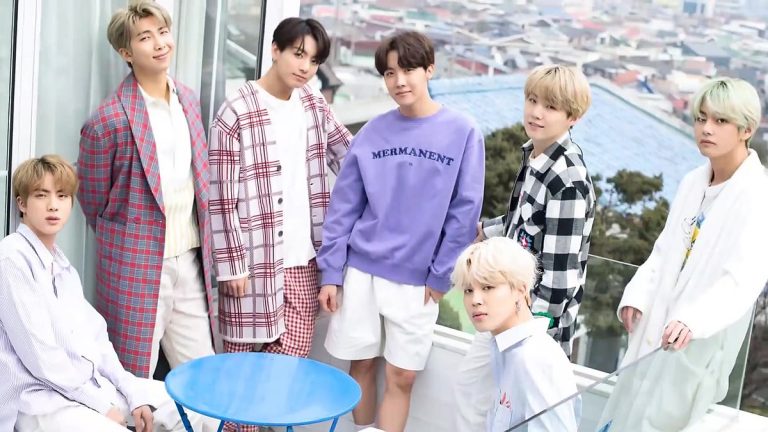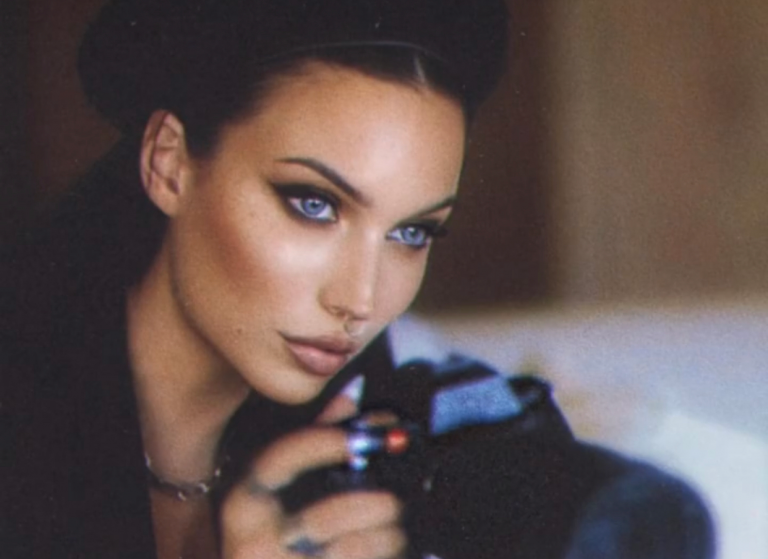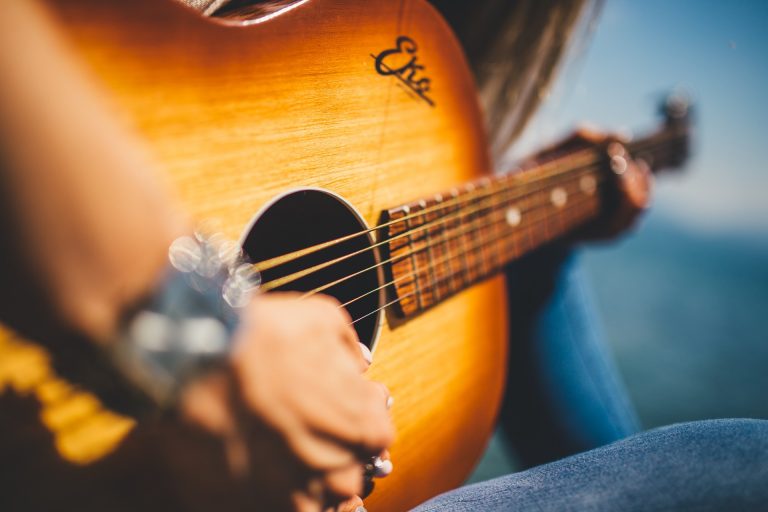How Women in the Music Industry Are Utilizing Music Videos to Tell Important Stories
Music videos often tell the story a song articulates while reflecting the social image the artist wants to portray to their audience. They are an excellent tool for promotion and marketing. In recent months, they have become a stage for artists to voice their opinions and tell their stories about the social and political climate around them.
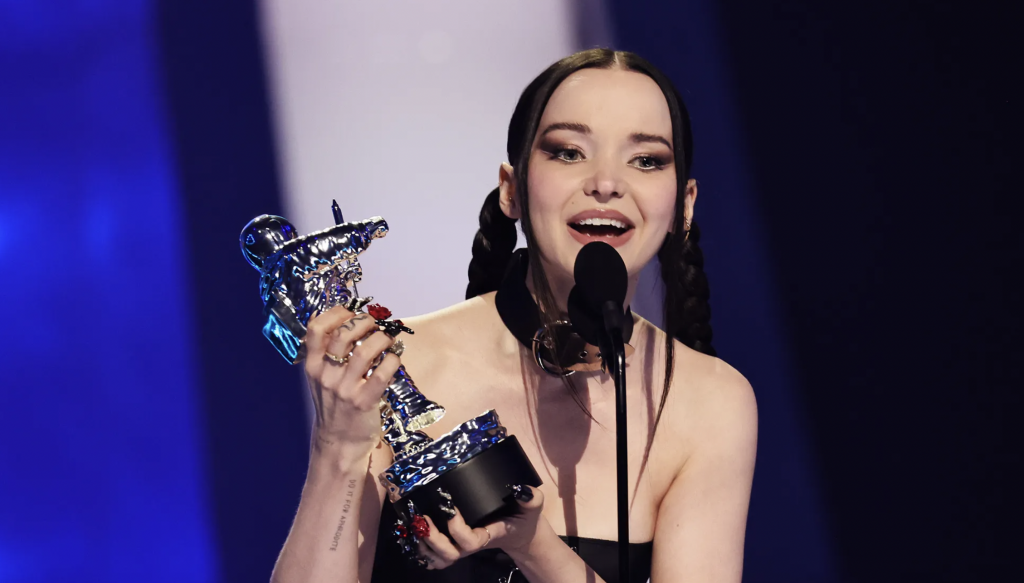
Recent Music Videos
Making up just one-third of the music industry, women are burdened by a culture that values men’s opinions and art. Female artists like Dove Cameron have taken to music videos to tell their stories as women and artists in a male-dominated industry, society, and world.
“I wanted to show people how ludicrous these situations are, and how damaging, limiting, trapping and diminishing it feels to be a woman every day,” Dove Cameron explained when interviewed by Seventeen on her new music video “Breakfast. This video has garnered over six million views and is still growing since her recognition as Best New Artist at the 2022 VMAs. In her video, gender roles are reversed; the bodily autonomy of men is taken away with the upending of Roe v. Wade, while women are in the position of power. “It’s uncomfortable to watch at parts, and that was the aim,” says Dove.
Other artists such as Taylor Swift, HAIM, and Sabrina Carpenter have left their mark on the music video front as well. Videos like “The Man,” “Man From the Magazine,” and “because i liked a boy” comment on topics such as sexuality, power dynamics, and gender disparities through aesthetic storytelling.
“There is a bit of a damned-if-we-do, damned-if-we-don’t thing happening in music,” writes Taylor Swift in an article with Billboard about The Man, “and I think that the more we can talk about it in a song like that, the better off we’ll be in a place to call it out when it’s happening.”
Speaking out on these issues is a risk to women’s careers and social images. It’s no coincidence that only more prominent names have had the tools and fan following to take these stances without being shot down by a marketing team or manager.

Those Who Came Before
Using music videos to challenge gender norms isn’t a new concept, though the conversations and portrayals of modern feminism have drastically changed in the last ten years.
Beyoncé’s “Pretty Hurts” (2014), which addresses the perfectionist culture and beauty expectations for women, and Jennifer Lopez’s “Ain’t Your Mama” (2016), which challenges gender norms at home, are past examples of female artists using music videos for commentary and activism.
However, other music videos from the recent past, such as Pink’s “Stupid Girls” (2009) and Jessie J’s “Do It Like A Dude” (2010) have not aged well in contrast with other artists’ feminist statements.
“Porno paparazzi girls, I don’t wanna be a stupid girl,” sings Pink, as the music video pans to her mimicking and mocking feminine women, calling them “stupid.” The “smart” girl in this video shames the women who enjoy feminine activities or presentations. Similarly, Jessie J’s video follows her acting “like a dude” and renouncing “pretty drinks” and other feminine-associated stereotypes.
These videos have tidbits of good messaging: don’t perform or change for the male gaze; women can be as masculine as they want to be and still have value. However, these messages often get lost in the mess of what appears to be women shaming women or the dismissal of anything feminine containing value.
More recent music videos have focused more on the critical takeaway that all women should have power over their bodies, stories, and art, and should be treated equally to their male peers (no matter their identity or presentation). This shift has not guaranteed complete positive feedback, however. Women in the music industry still continue to face backlash for music videos of any kind of presentation, and are still fighting for an equal amount of respect to their male peers and audiences.
“I feel like because we do choreography in our music videos, sometimes the rock community doesn’t take us seriously,” says vocalist Danielle Haim of HAIM in an interview with Coup De Main Magazine when talking about their recent release of music videos for their album “Women In Music Pt. III.”
“It’s something we think about a lot: Maybe if we [didn’t] dance around and stuff, the rock community would take us more seriously…I think unfortunately it does have to do with us being an all-female band.”
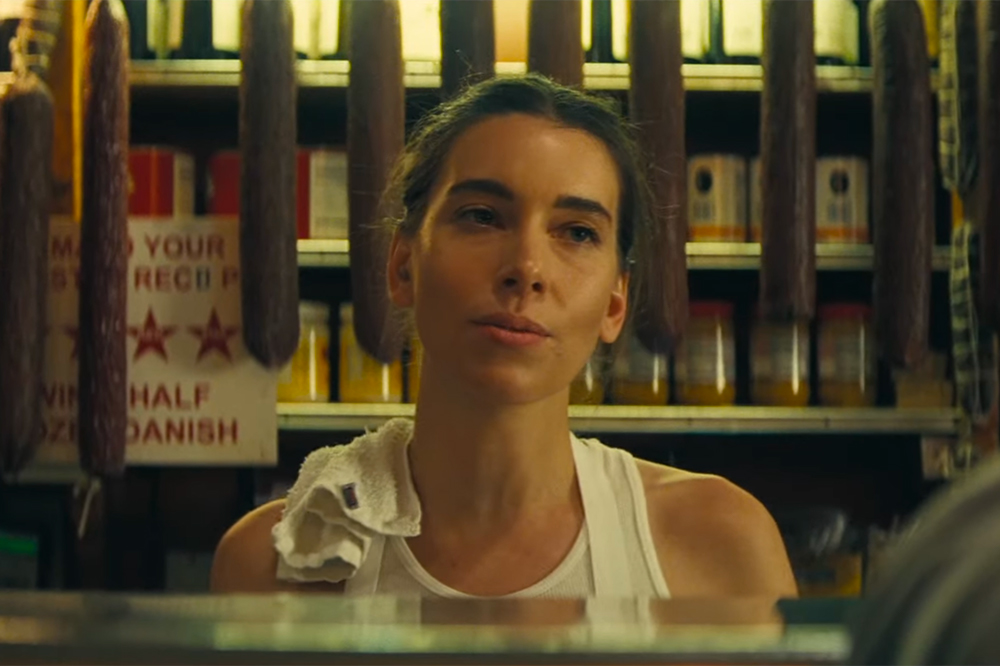
What We Can Do
As consumers, we have become increasingly desensitized to the media that is ever-present in our lives. The standards that women face today result from hundreds of years of disparity. It is our responsibility as consumers and as people to listen to and uplift the voices of women speaking out.
